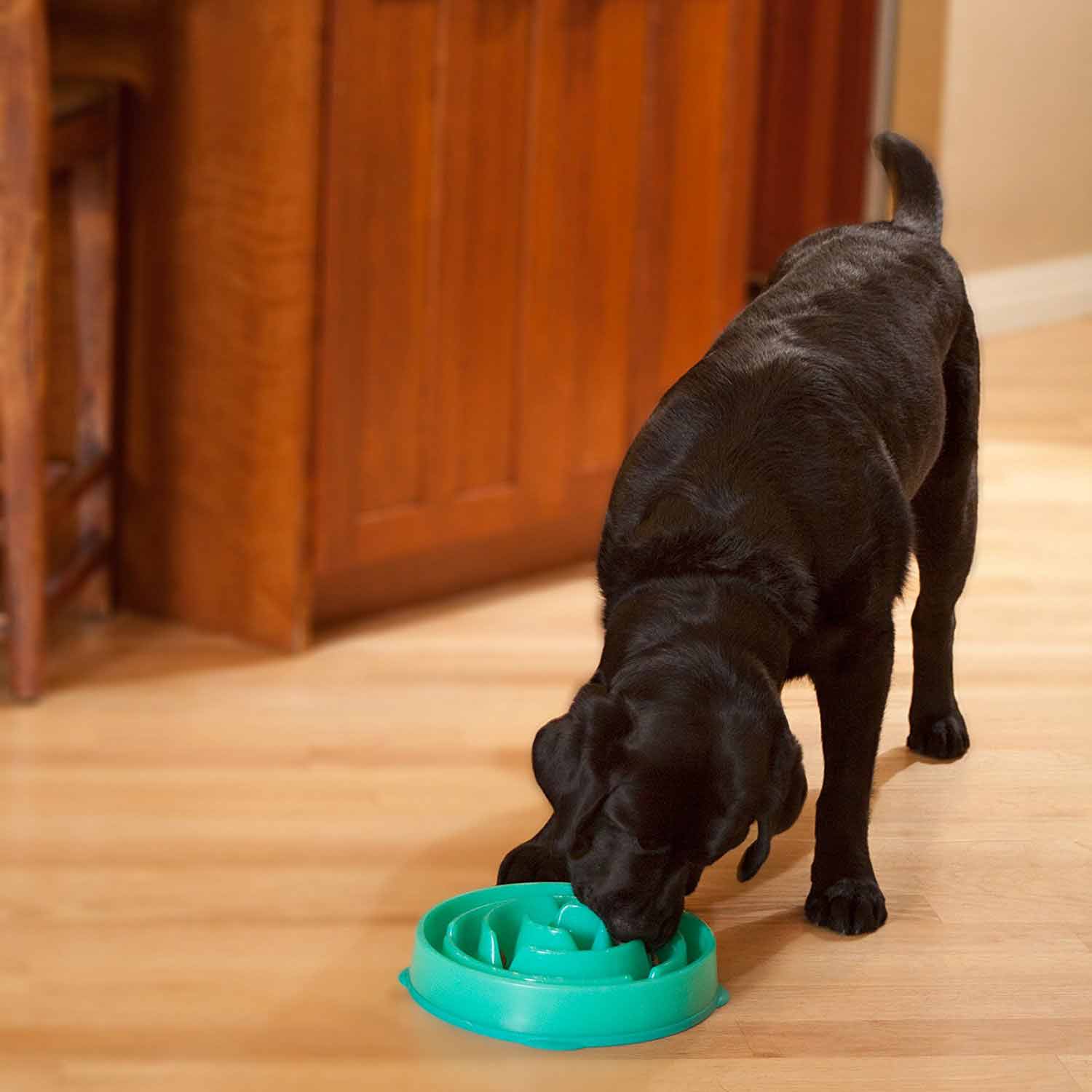Labrador Retriever Lifespan – How Long Do Labs Live?
The average Labrador Retriever lifespan is 12 to 12.5 years. Although a recent study suggests chocolate Labs live shorter lives averaging 10.7 years, significantly less than black and yellow Labradors.

Factors influencing lifespan in Labs include diet, healthcare, management and inherited diseases. Changing these factors can enable you to help your dog live longer.
Contents
- Factors influencing Labrador lifespan
- Genetics, diseases and body shape
- Do pedigree Labs live longer?
- The coat color conundrum
Your Stories
There are over five hundred comments under this article, some are sad, some happy, all about much loved Labradors. Check them out at the bottom of this article, and have a tissue ready.
What Controls Labrador Retriever Lifespan?
Obviously ten isn’t a guaranteed Labrador lifespan for every dog. Some Labradors live a good deal longer than twelve. But some don’t make it to ten.
There are two key categories of factors that influence your Labrador’s life expectancy. And the lifespan of any dog.
- One is the genetic information your dog inherited from his parents.
- The other is the events that happen to your dog during the course of his life. Through puppyhood to old age. Things like accidents, injury and disease.
How Long Can A Labrador Live?
Life span statistics for dogs are often wildly inaccurate, based on outdated information. Luckily, we don’t need to guess. Accurate Labrador life span information comes from data from scientific studies.

Labrador Lifespan Surveys
Two surveys were carried out in 2004 and 2013. The earlier study showed the median age of death in over 500 Labradors was 12.25. The later study gave a median age at death in a group of over 400 dogs as 12.5 years.
A bigger and more recent study published in 2018 looked at over 30,000 Labradors. This one found a median longevity of 12 years in Labradors overall. So the average Labrador lifespan seems to work out at around 12 years.

Is Labrador Lifespan Getting Longer?
The good news is there is evidence that Labrador lifespan might be increasing. One recent study, although it only looked at 39 dogs, suggested the average could be getting closer to 14 years. So our original question “how long do Labradors live” is changing!
The longest confirmed lifespan for a Labrador was 19 years. There are plenty of reports in the comments section below of readers’ Labradors living over 15 years.
You can help your dog to reach these high numbers, but nothing is guaranteed. Let’s look at the genes controlling how your dog looks and behaves. These set broad limits to the lifespan of your Labrador.
Genes & Labrador Retriever Lifespan
Your purebred Labrador inherits a number of Labrador characteristics shared with all other pedigree Labradors.
These genes don’t just control his coat color, the shape of his ears, and the length of his tail. They control aspects of his temperament and susceptibility to disease.
Labrador Body Shape
To some extent Labradors are lucky. They inherit a basically sound conformation or body shape. They don’t have very long spines or short legs that can cause back problems. Their bodies are nicely proportioned and designed for athletic ability, running and jumping.
Labradors have not been bred with shortened faces that can cause breathing problems, or small skulls that can damage their brains. Nor do they have excessive skin or a massive amount of fur. This is great because a good body structure makes a dog naturally healthier than a dog with poor conformation.
Temperament and Labrador Lifespan
Genes control some aspects of your dog’s behavior. And his ability to carry out tasks like running and hunting, or fetching things. However, temperament, including tendency to fearfulness, is influenced by genes and the environment.
One study showed that fear and anxiety has a negative effect on lifespan in pet dogs. Some dogs are euthanized for aggression or behavior problems. So temperament is a factor in life span.
Some dogs inherit a number of genes that improve their chances of good health. Reduced risk of cancer for example. These genes are passed onto their puppies.

How Inherited Diseases Affect Labrador Retriever Life Span
Labradors are relatively healthy, but there are diseases in the breed that can influence how long your Labrador will live and how healthy your dog will be during their lifetime. Some of these diseases, hip dysplasia and CNM for example, we have tests that should be carried out before breeding adult dogs.
There are however no tests for diseases like cancer. A 2004 study showed 31% of Labradors die of cancer, slightly more than the average rate of cancer in dogs overall.

How Size Affects Longevity
Little dogs live longer than big dogs. A quirk of nature we don’t entirely understand. Of course, there are exceptions to the rule. But in general the longevity of dogs is strongly linked to body size.
This is the reverse of what we find when comparing species of mammals, like the long lived elephant and the short lived mouse.
Looking at individuals in the same species, in this case the domestic dog, being large is a disadvantage.
As a medium dog size is a limiting factor for your Labrador. The average Labrador won’t live as long as the toy poodle.
Labrador Lifespan and Inbreeding
Genetic diseases establish in pedigree dog breeds like that Labrador breed due to inbreeding dogs that are closely related. The average coefficient of inbreeding for Labradors is 6.5 %. We see adverse effects of inbreeding in dogs at over the 5% level.
Do Purebred Labs Live Longer?
Purebred Labradors outer limits on lifespan are set partially by their pedigree. Mongrels live on average 1.2 years longer than purebred dogs according to a study published in The Veterinary Journey in 2013. This doesn’t mean your Boxador will outlive your neighbors pedigree Lab however, it’s all about averages.
Comparing Pedigree Dogs
When we consider pedigree dogs as a whole, there are differences in longevity between the breeds. Not just in terms of size, though this is important.
There are also differences between different breeds of a similar size. Sometime shorter life spans are linked to poor conformation. Many very tiny dogs have hormone problems, brain problems through skull compression, and a range of other health issues. In comparison, Labrador conformation is pretty healthy.
Let’s take a look now at that topic we mentioned at the beginning of the article. The recent discovery that Chocolate Labs live shorter lives than their cousins.
Color vs Lifespan
For a long time it was believed that coat color had no influence on Labrador life expectancy. With the exception of color dilution alopecia in silver Labradors, it was thought that inherited diseases were not linked to any particular color or type of Labrador.
A recent study of over thirty three thousand dogs has thrown that assumption into doubt. It shows us that black Lab life expectancy and yellow Lab life expectancy is around 12.1 years. While chocolate Lab life expectancy is quite a bit shorter at 10.7 years.
The Chocolates in that study were more prone to ear and skin problems. This included self-inflicted “hot-spots” as a reaction to irritants like fleas. And we don’t know if the two main Labrador ‘types’ differ. So we can’t tell you if English Lab life expectancy differs from American Labs.
The study was a very big sample of dogs. So it is likely that the results represent the wider Lab population as a whole.
How Long Will My Lab Live?
Apart from your ability to be selective over the parents of your puppy, genetic factors are largely outside your control. But as your Labrador grows and matures, there will be life events that happen to him which may influence his life expectancy. Some of these are events that you can control. Let’s take a look at those now.
Accidents & Roaming Impact Labrador Lifespan
Hundreds of dogs die each year in avoidable accidents when unsupervised outdoors. Secure fencing around your backyard and a good recall training command will help you keep your dog from becoming a part of that statistic.
Neutering
It was believed neutering increased life expectancy. Older studies showed a higher death rate for unneutered dogs because they were uncontrolled. They had the urge to roam, the ability to leave the backyard, and therefore got into accidents.
Recents studies link neutering to health issues including joint disease and cancer, both leading causes of illness and death in Labs.
The neutering issue isn’t clear cut, but the principles of training and control will help keep your dog safe.
Vaccination
In parts of the world there are serious diseases that kill unvaccinated dogs and puppies. Vaccination enables your pet to avoid the infections that have the potential to kill them
Overfeeding Decreases Labrador Lifespan?
The biggest influence you can control regarding your dog’s longevity and enjoyment of life is his bodyweight. Obesity is increasingly common in dogs, and Labradors in particular. The direct result of over feeding.
Labradors are greedy dogs good at persuading people to hand over treats and refill the food bowl. Some Labrador parents struggle to judge quantities of food fairly in the face of puppy dog eyes.
Don’t slavishly follow feeding guidelines on packets, but feed according to how your dog looks and feels.
What Do Studies Say?
Studies show reducing calories intake in dogs increases life expectancy a significant amount due to the health impact of obesity. Labradors are all capable of maintaining a consistent lean body mass through their lives, according to a 2003 study. Dog owners just need to be vigilant.
Hungry Labrador Eyes!
Your Labrador does not have a tendency to get fat from their breed. Only to eat a lot and be good at persuading their family to provide food. You have the keys to the larder, and you can resist your dog’s charms.
Slim dogs live a longer, more comfortable life. They defer the onset and impact of conditions like arthritis in older dogs, when they retain a youthful waistline. Be firm about the amount of food your dog eats to ensure the benefits of his company for longer.

Is Longevity In Dogs Inherited?
To a certain extent longevity is inherited. Some dogs have an inherently higher potential for long life than others. But this isn’t the whole story.
Line breeding and size go against your dog in terms of life expectancy. But being fit, friendly and well proportioned go in their favor. So the average Labrador has a medium range life expectancy compared with other dog breeds.
You Can Help Your Labrador Live Longer
There are some dog breeds that are longer lived than our beloved Labs. And quite a few that are much shorter lived.
You can help to influence your dog’s longevity to a certain extent. If you are choosing a puppy, choose his parents wisely. Make sure that they are health tested and bred by a responsible breeder. Look for a co-efficient of inbreeding that is below 5%. Consider choosing a black or yellow Lab. And make sure the parents have great temperaments, and have been well cared for.
Socialize your puppy thoroughly when you get him home. So that he is confident and views the world as a happy, friendly place. Above all, keep your dog slim. Really slim. When you look into those pleading eyes, make sure you don’t give in to your dog’s request for second helpings.


Free Labrador Updates!
Get my training tips, news, reviews, and the latest from The Labrador Site delivered to your inbox




My first lab was a black lab Samoyed mix. He was a big boy. He came to me when he was 4 yrs old I think and lived to be almost 15, he was 4 months shy of his 15th, but I should have put him down sooner because his hips had gotten so bad that at the end he was not active. HE would come outside with the other dogs but he would stop and lay down just after getting outside where he could watch me and the other dogs. It’s bringing a tear to my eye now as I remember him at the end. It was very selfish of me to keep him around that long and will never do that again. HE was a happy boy and I think happy dogs live longer too. My current boy is all lab, he’s black with a soft brown color on top of his feet, not sure if he was bred with black and brown parents or not. HE was found wandering around in the woods with his brother I think. HE is now 3 months shy of his 14th bday and is now having hip issues, so what I learned from the first boy with hip problems will guide me in determining Charlies near future. Charlie is also a very happy boy so I have to weigh his happiness and his hip problems to determine his longevity. That is by far the worst part of parenting dogs at the end of their life.
I had a Lab/Shepard Mix her name was Ebony. Ebony just crossed the rainbow on August 19, 2023. Ebony was 16 years old, some believe she was closer to 17 years old. She was the best dog ever. At the end she suffered from seizures and had hip and joint pain. She was a trooper until the end.
Oh, I love the comments here! Just looking up stuff on Black American Working Labs out of further curiosity about them. I have a Black American Working Lab from a breeder that is now 3.5 years old. He is the love of our lives, although sometimes, a lot of work! Work in that if I had known how much they shed and require exercise wise, may have thought about a different dog, but given that, I wouldn’t trade him for “all the tea in China”… He is intelligent, well mannered (except when he gets his little defiant moments when he doesn’t want to stop playing ball or coming from the outside) and never “runs off” or leaves our sides. We take him EVERYWHERE we go, on EVERY trip, EVERY hotel that allows pets -he takes to nice white hotel beds like a “duck takes to water”… LOL. He is an indoor dog when it comes to sleeping (has two dog beds, one in our bedroom, one in our living room), but has a HUGE backyard and nice front yard… We’ve spoiled him in that he gets everything we do… NO FOMO here!! LOL! He’s a “rock star” wherever we go, people want to pet him, love him. He’s a jewel -so loveable and so darn smart! He communicates to us about everything… When his water bowl is low, he makes a certain sound about that, when he wants more food (of course, with Labs, always MORE FOOD), he’ll take his paw and pound on the floor to tell us that, when he wants to go outside, he’ll pound on the floor or scrape door to tell us that!! When he wants attention, when we are watching TV, he’ll steal the controller to make us chase him… or steal the couch pillows… When he wants to cuddle, he’ll do that too and/or do what we call a “funny bunny” (which he knows what that means) where he lies on his back and puts his feet up… A real character! I love him more than I can say even though I’ve spent nights having to get up at 12 midnight to wash him because he chased our neighborhood skunks and got sprayed!! Anyway, the only thing I want to express here for people considering a black lab… great dog, one you and your family will love forever, but just be aware that they take some work!! They need exercise daily, they will chase skunks and get sprayed, they will shed heavily (get your vaccum ready!), but given all that, they will be the most loving, memorable companion/family member you will ever have in your lifetime!
PS To Joan: I feel for you and know what it is like to have to put down a buddy, I’ve had to do it in my lifetime and it SUCKS!! I had a Beagle, 14 years old, that had congestive heart failure, I was ready to lay my visa down to pay for a $10k surgery… I had a wonderful Vet that explained to me (and he could have made that money), he may not even make it through the surgery and if he does, it will be a horrible situation for him going forward, you will literally have to lift him every time he needs to “go outside”… He finished it by saying… “you keeping him alive is not for him, but for you… It would be horrible to perpetuate his pain”… I revere this Doctor! Most would have taken the money as I was more than ready to pay it, but his comment brought it in to perspective for me! G
Hello, I have rescue and adopted a yellow mix which I call “Butter Boy” nickname or Muggies his given.He was a dream come true as I had always wish for and wanted a lab for a pet and companion. Now I have one! He is the love of my life. We have fused, kissed, played, tickled, chased, and slept with our little boy. He is a one year old grown dog now but still is bouncing around the house. He brings us so much joy, love , love bites and spity hands as he always has my hand in his mouth. He hugs me and hugs me with a love bite on my ear lobes. I have the rest of my life with him and my husband and I can not stop kissing him. He loves the pool and on 4th of July this year, made his maiden voyage into our pool and swam successfully. We are so proud of him. He has be watching our two Dalmatians playing jump and fetch the doggie foot ball. Now he brings back the other side of the football along with his adopted sister, dolly. So precious!I’m looking forward to the years that I will spend with my beautiful boy, Muggies or Butter Boy.
Have had several Lab mixes, now have a purebred. I prefer the mixes overall, but would not exchange my current Sofi for one, for sure. The longest living Lab so far was about 18 and was unable to walk or squat, so it became necessary to have the vet do euthanasia – but even then, my Bobby sat up and leaned into my hand. It took a second dose to ease his psin for good. Even the Vet was upset. The second one was a mix we got from a neighbor when their smallish, shaggy-haired terrior-mix had “unexpected” pups. BJ, short for Blackjack, turned out to have definite Great Dane features – he was waist high to me (5’6″) at a year old, and didn’t stop there. He was mostly an outside dog (we live on a farm), but we had a special “bed-shed” for him in the garage, with a “run” to an outdoor pen for his nighttime potty needs. I used to dance with him, his front paws on my shoulders, around the garage before putting him to bed at night. Unfortunately, BJ got a small tumor on his rump at age 7; the Vet removed it and he seemed fine until almist 2 years later, when he went downhill very fast and died. We picked up our current lab, Sofi, 9 weeks later – and learned she had been born the same day BJ died.
I like to think a part of his spirit lives on in her.
Looking forward to a big reunion at the Rainbow Bridge when it’s my time.
My last Labrador, a full-blood black American Labrador, lived to be 16.5 yers old. His son, my current Labrador, is now 11 and he is plenty active and filled with fun and games, tho he loves to sleep in my lap whenever he gets the chance. My current Lab was sired when his daddy was just 16 years old